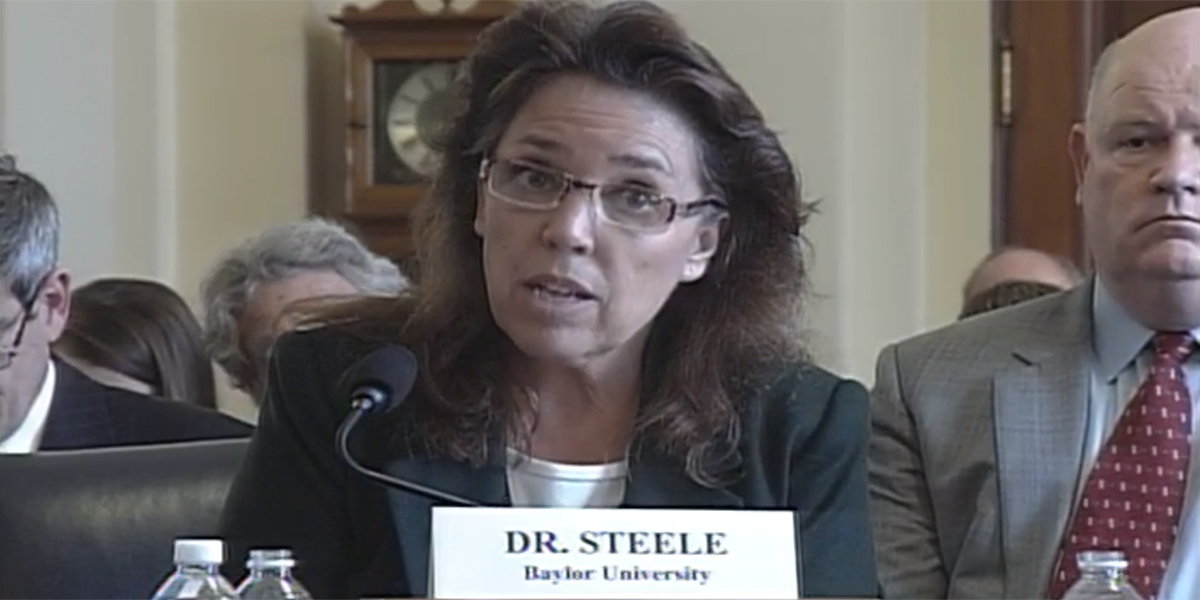Baylor scientist is a Washington regular for U.S. veterans

Dr. Lea Steele, research professor of biomedical studies and Director of the Baylor Veterans Health Research Program, is no stranger to the halls of power in Washington, D.C. In the past few weeks alone, Steele — a neuroepidemiologist and recognized expert on the complex health conditions affecting American veterans — has been to the nation’s capital for scientific activities at three different federal agencies.
In November, she chaired a Department of Defense panel that evaluated scientific proposals submitted by universities to obtain funding for studies of military and veterans’ health issues. In early December, she provided a “State of the Science” briefing for a special workshop convened by the National Institutes of Health on chronic fatigue syndrome and other similar, poorly understood medical conditions. And later in the month, she was back in Washington for meetings with officials at the Department of Veterans Affairs to discuss Gulf War illness research.
Steele’s work at the interface of science and federal programs is nothing new. Since publishing research in 2000 on the health of Operation Desert Storm veterans, she has regularly been called to testify in both U.S. Senate and House hearings, to provide informal briefings to Congressmen and staffers, and to serve on federal committees tasked with understanding the medical consequences of military service.
Since initiating her research program at Baylor in 2010, Steele has developed scientific collaborations with regional and national partners, including Baylor Scott & White Healthcare. Her research has been supported by multiple grants totaling nearly $3 million in external funding, and just this week the journal Environmental Health published results of her team’s study that found the first direct evidence of a genetic factor that can make some individuals more susceptible to Gulf War illness.
Steele says she is humbled and blessed to have the opportunity to apply her scientific training and expertise in the service of those who have given so much. “We can never lose sight of the fact that our work, beyond its scientific importance, has real consequences for the many thousands of veterans who continue to suffer long-term health effects of serving in a theater of war.”
Sic ’em, Dr. Steele!

